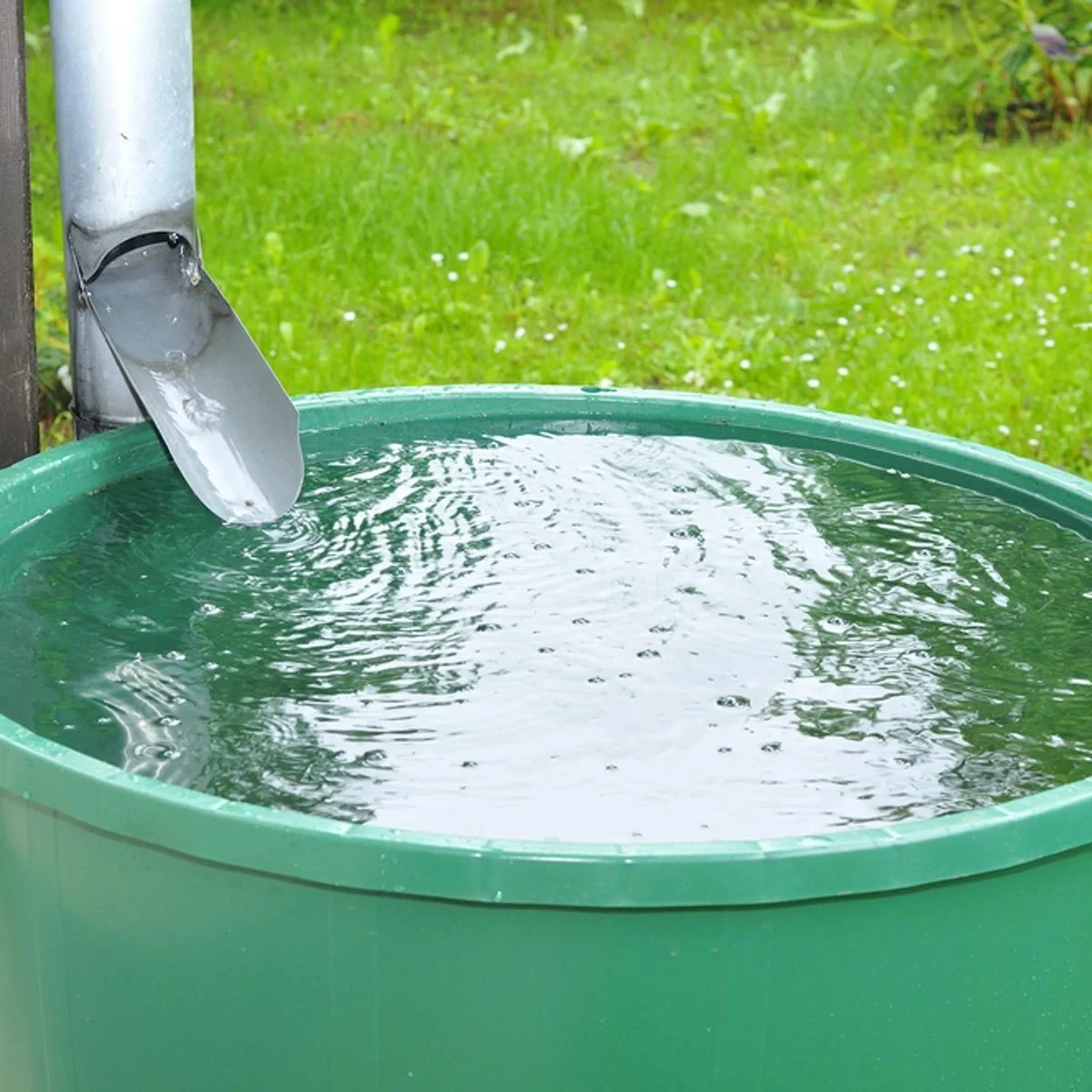Rainwater Harvesting – The Ultimate Way To Save Money And Water
Rainwater harvesting may be one of the most sustainable and cost-effective garden trends ever to exist. As the name suggests, harvesting rainwater simply means to collect and store rainwater to reuse it later on. It’s a great way to make the most from the summer thunderstorms and to ensure you have a good water supply when the drought hits. Rather than letting all that water go to waste by collecting it you can easily lower your water bills and help out the environment. Sounds amazing! Now that the world is experiencing more and more heatwaves and droughts, collecting rainwater is...

Rainwater harvesting may be one of the most sustainable and cost-effective garden trends ever to exist. As the name suggests, harvesting rainwater simply means to collect and store rainwater to reuse it later on. It’s a great way to make the most from the summer thunderstorms and to ensure you have a good water supply when the drought hits. Rather than letting all that water go to waste by collecting it you can easily lower your water bills and help out the environment. Sounds amazing! Now that the world is experiencing more and more heatwaves and droughts, collecting rainwater is a simple solution. If you live in a place with depleted or polluted water sources, read on how harvesting rainwater can help you out.
Harvesting rainwater simply means to collect and store rainwater to reuse it later on

How to harvest rainwater
Harvesting rainwater is super simple. In general, it depends on how much water you need, as well as what you plan to you is for. The most basic methods of collecting rainwater is to put around bowls, barrels, pots, and other types of containers around your garden. You can position all these containers under downspouts as well for easier and faster collection. However, storing rain water in such containers means it is lacking in filtration, as well as proper storage. This means you can use it mainly for gardening purposes. If you are planning on using rainwater for drinking and cleaning purposes, then you may need a more complex system. For that you will need to buy the appropriate equipment and filtration systems. It may also require some installation. But if you live in a place where there are long periods of drought after rainfall, it is worth the investment.
Harvesting rainwater is super simple
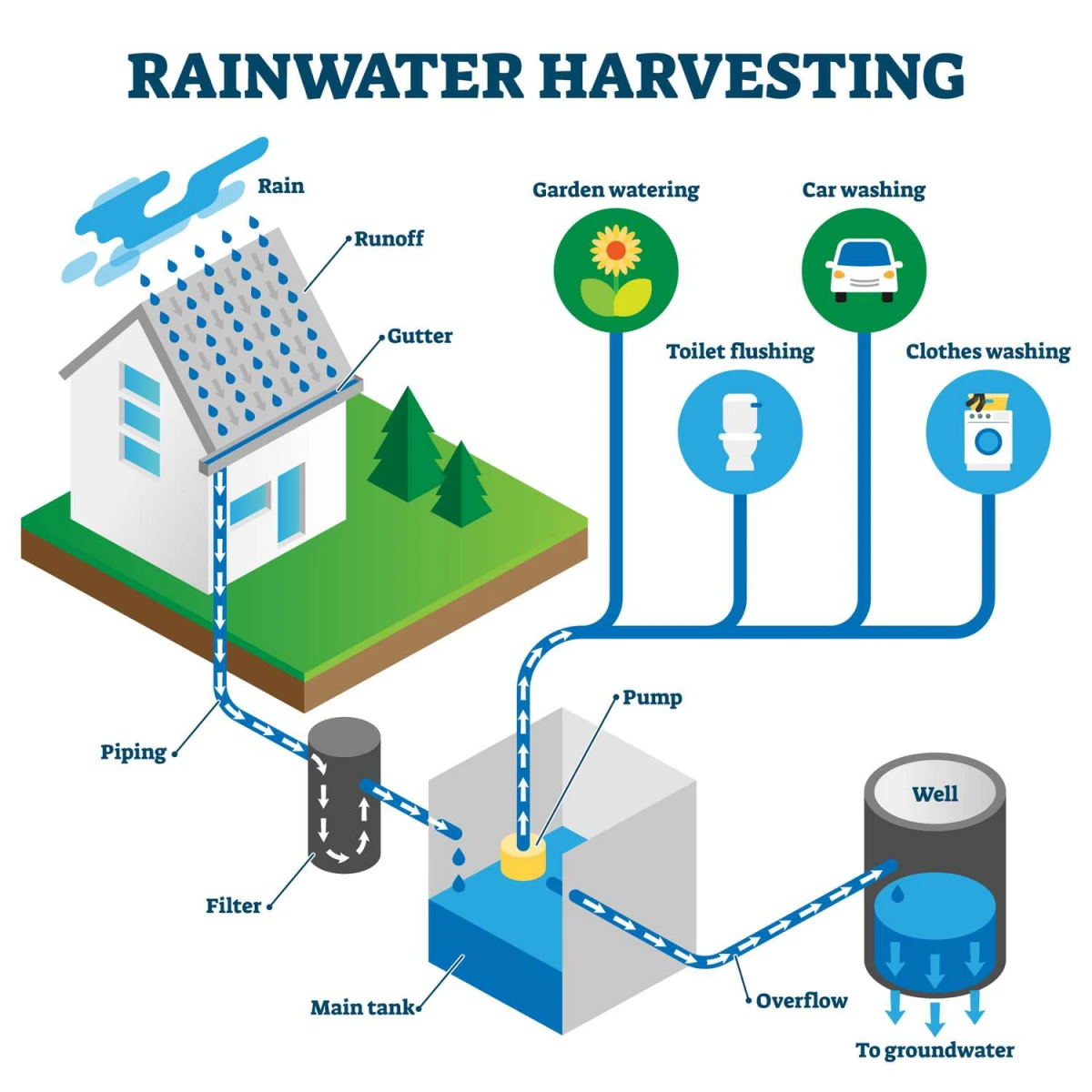
@Treehugger
Rainwater harvesting benefits
Collecting rainwater isn’t a modern practice. Some anthropologists even believe that catching and storing rainwater went hand in hand with the development of agriculture around the world. We wouldn’t be where we are now without it. So, let’s learn from the past and use this method to our advantage. Today we tell you everything you need to know about the magical methods of rainwater harvesting.
Collecting rainwater isn’t a modern practice
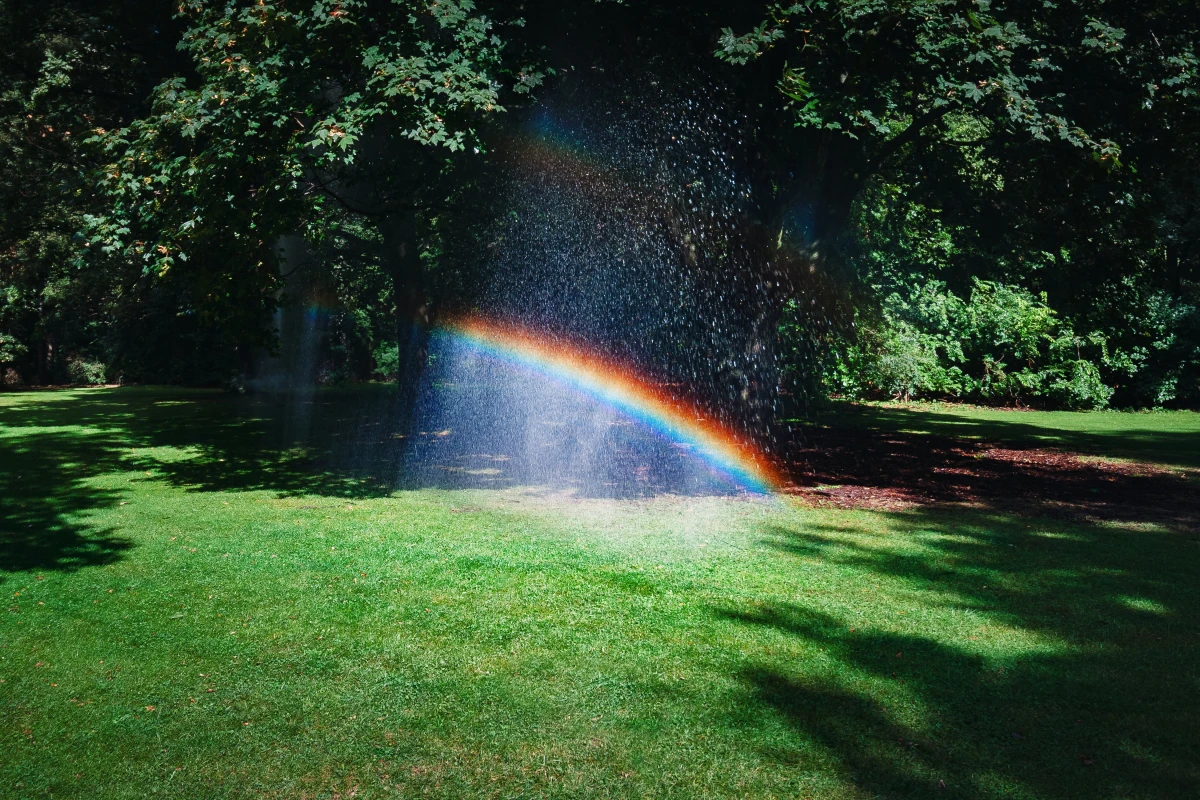
#Saves you money
You can use the collected water for purposes such as gardening, flushing the toilet, washing, and drinking. This means that you can easily reduce reliance on treated water from the utility. You will see your water bill go down significantly in a matter of months. In the long term you will save a lot of money thanks to the collected rainwater. Even if you invest in a filtering system, this is going to be a major cost but only once. After that it does its job and you have free water.
You can easily reduce reliance on treated water from the utility and save from bills

#Helps with water conservation
Collecting rainwater also helps with natural water conservation. Since you will have your own water the demand for traditional water sources like from the municipal water supply or groundwaters reduces. You will alleviate the pressure from these traditional resources, as well as preserve local water resources and reduce the strain on the natural ecosystem. It will also be much less likely for these water sources to run out and cause a drought for people who may be reliant on them and have no way of collecting their own water.
Collecting rainwater also helps with natural water conservation
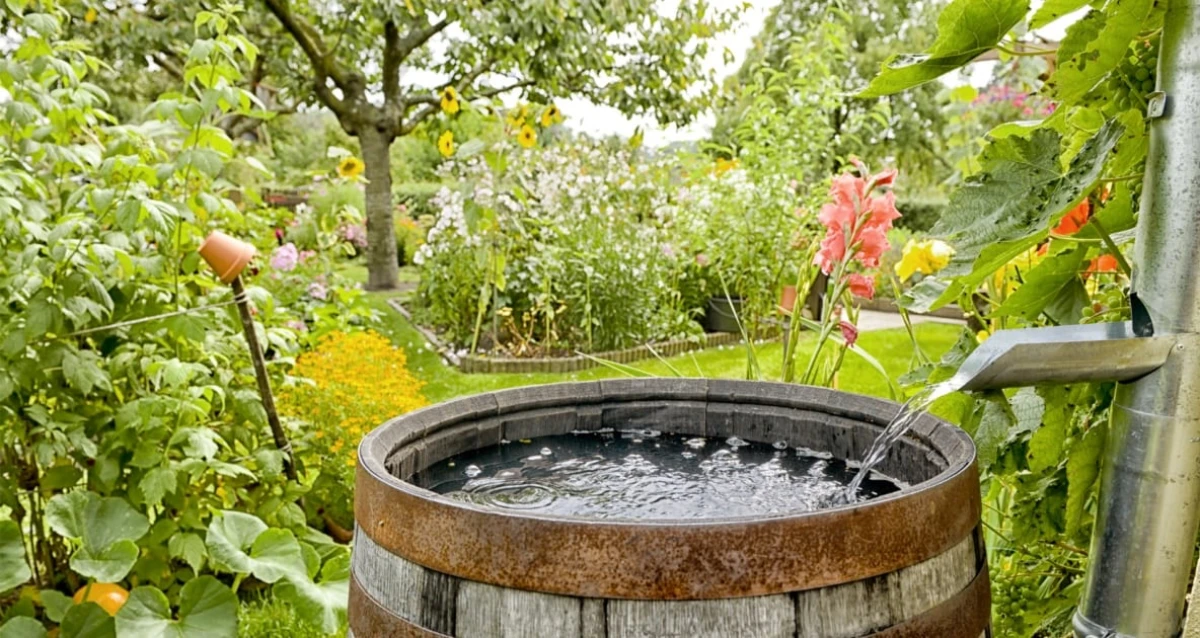
#Makes your property drought tolerant
Even if there is a drought or there are times when there are water restriction or emergencies, your property will be self-sufficient. You will have plenty of captured rainwater to get you through those periods, which helps to offer you some peace of mind. Having your own independent water supply readily available is a blessing, especially if you live in climates where water can get scarce.
You will have plenty of captured rainwater to get you through drought periods
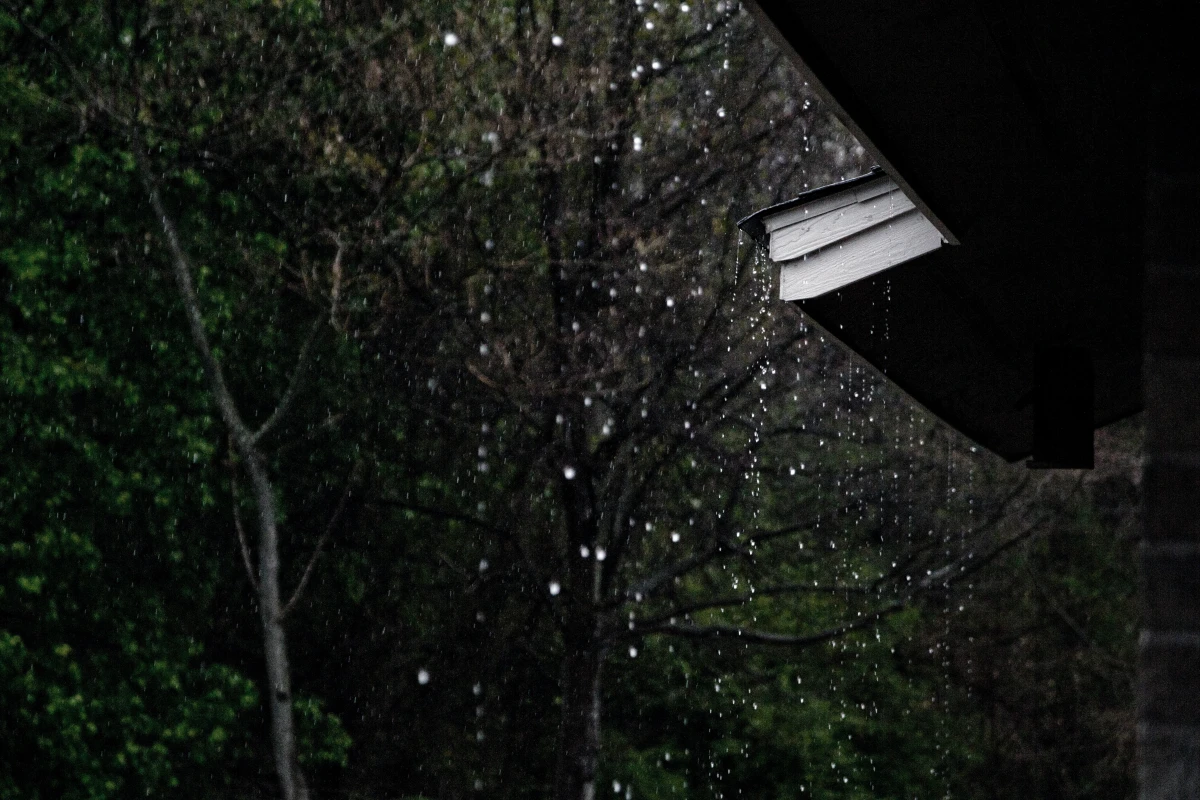
#Great for the garden
Since rainwater is naturally free from chlorine, fluoride, and other chemicals found typically in tap water, it is wonderful for the garden. Using rainwater for irrigation benefits the soil, as it is much softer and way less likely to cause any mineral buildup or damage to your beautiful plants. Not only that but rainwater has plenty of natural nutrients that can boost your plants and help them grow healthy and strong.
Using rainwater for irrigation benefits the soil and your plants
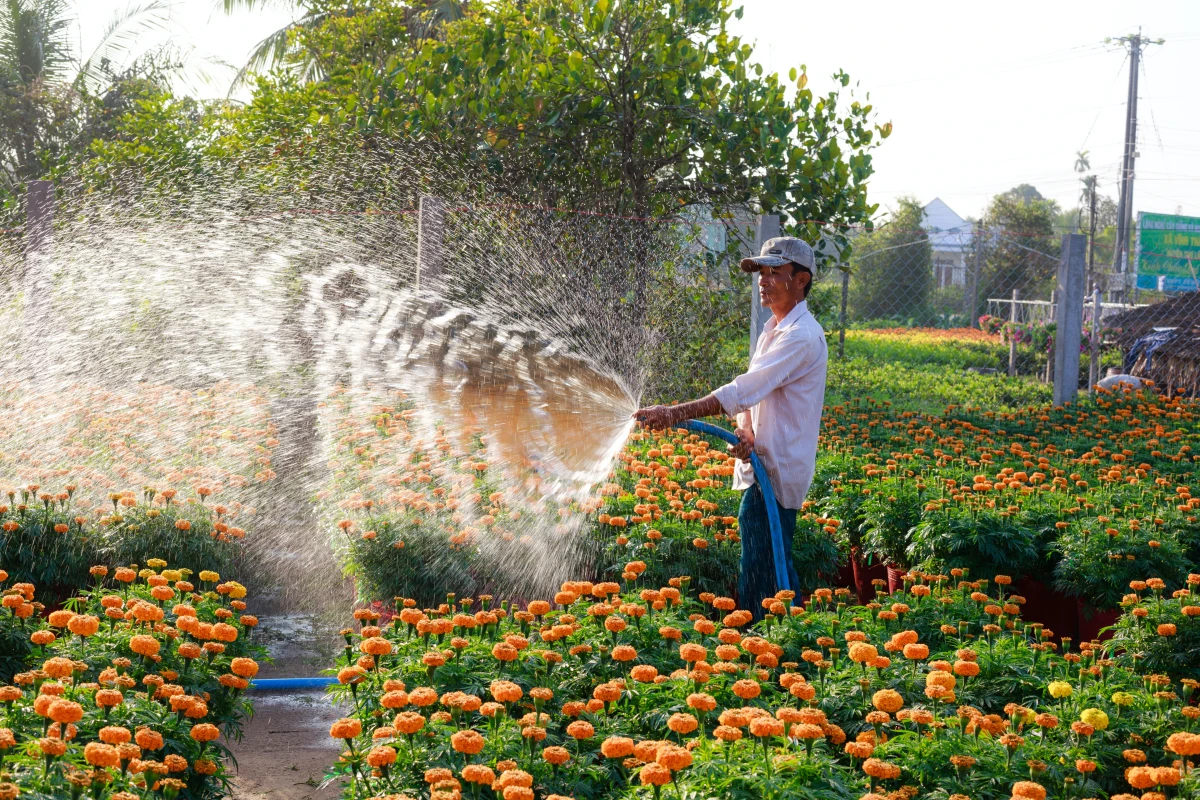
#Prevents flooding
Most harvesting systems include features like rain barrels, cisterns, or permeable surfaces that help capture the water. This helps prevent stormwater runoff, thus reducing the risk of local flooding. Not only that but the runoff can also carry pollutants and contaminates unto the natural water bodies, causing water pollution. By collecting the water you stop both pollution and flooding. Nature will thank you, as well as the local wildlife and even inhabitants of urban areas with impervious surfaces.
By collecting the water you stop both pollution and flooding
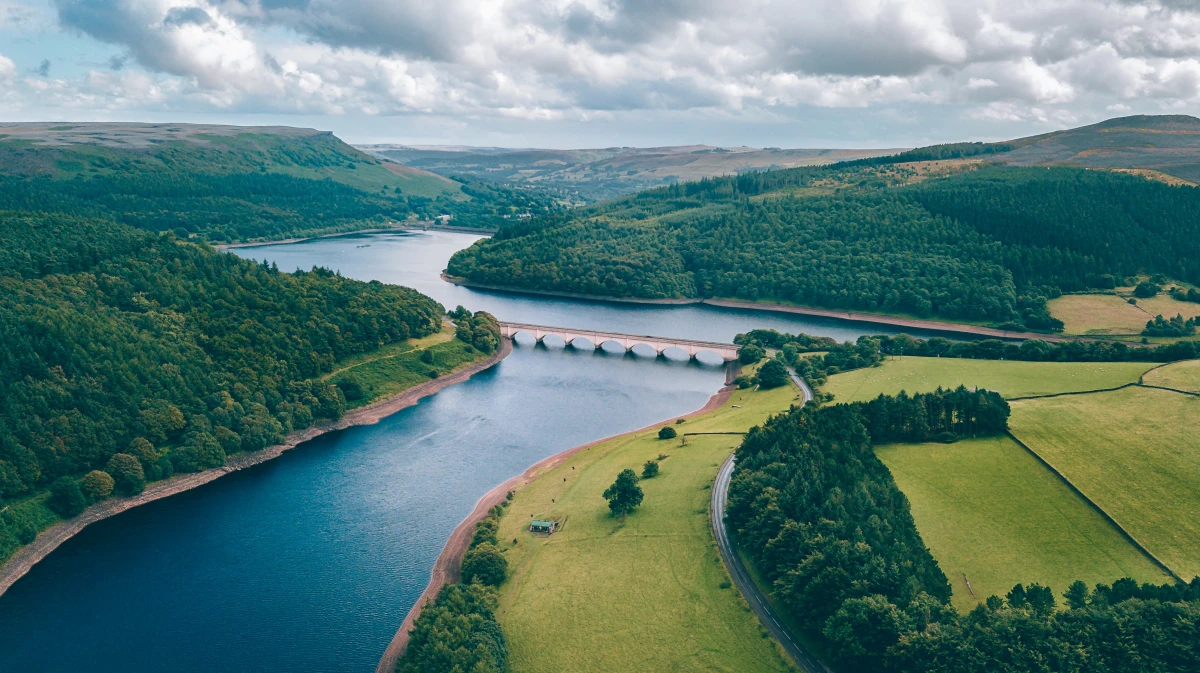
Uses of rainwater
We’ve talked a lot about how you can collect rainwater, as well as the amazing benefits it comes with. But once you’ve collected all that water what can you actually do with it? Well, the beauty of rainwater harvesting is that it comes with a ton of uses. You can use it pretty much in any way you would use water from your tap or a well. It just depends on if you have filtered the water or not.
The beauty of rainwater harvesting is that it comes with a ton of uses
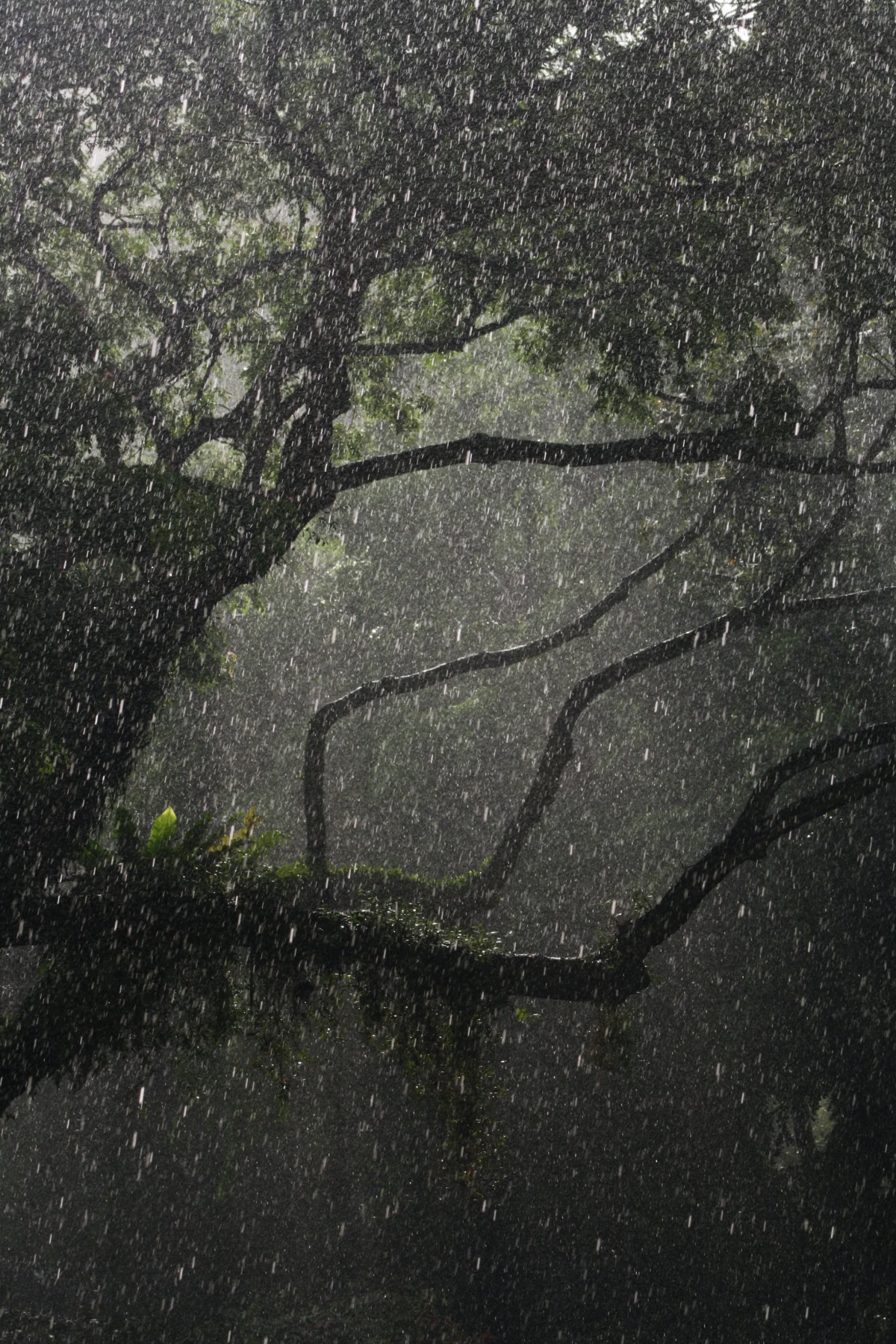
#Unfiltered water
If you don’t have a filtering system or you are not planning on using the water for drinking and eating, here is how you can use it around the house or the garden:
You can still use unfiltered rainwater around your property
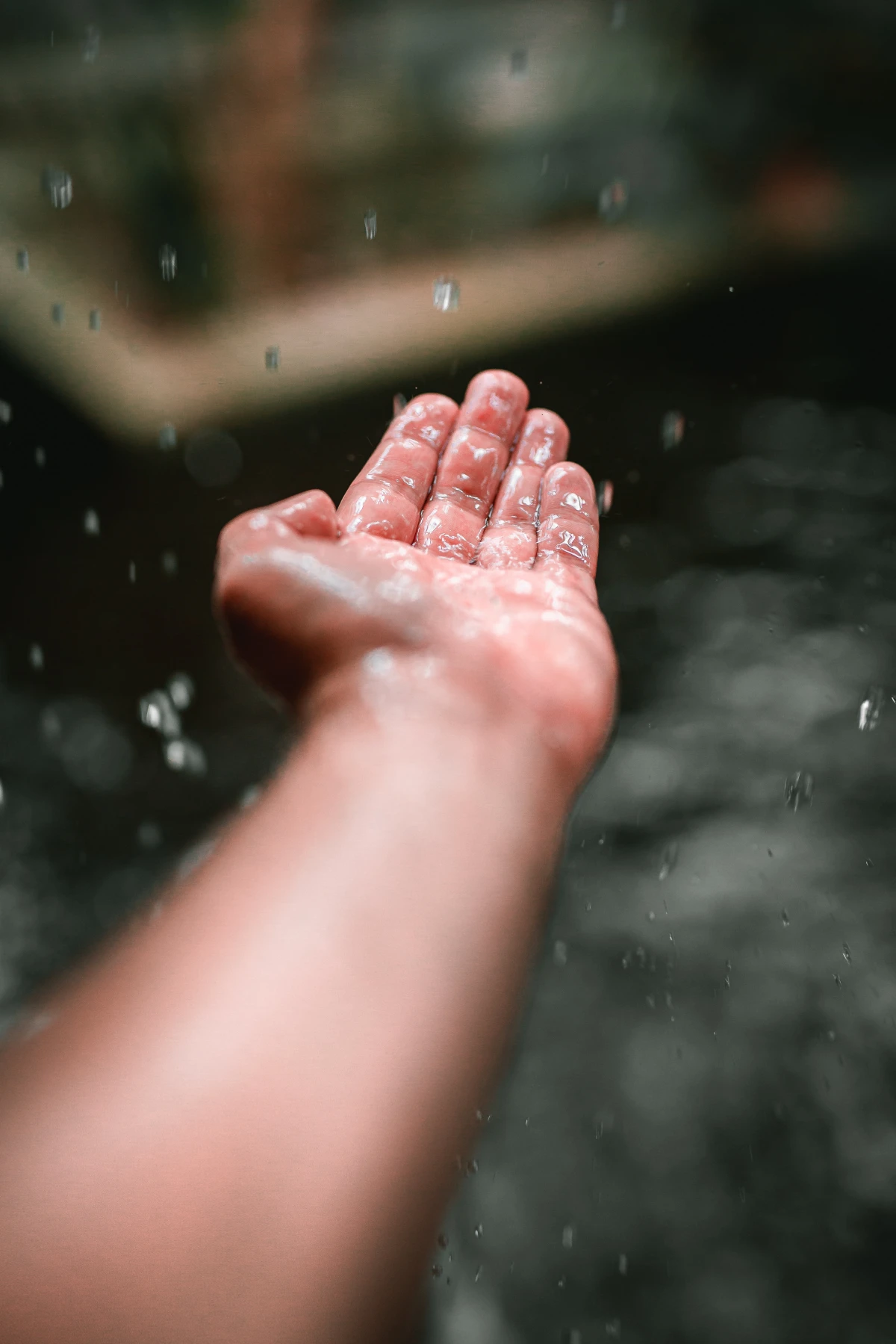
- Watering your outdoor and indoor plants;
- Washing your car, pavement, or outdoor furniture;
- Flushing the toilets;
- Washing certain pieces of laundry;
- Mixing concrete, cleaning equipment, and suppressing dust on construction sites;
- Use it for birdbaths;
- Suppress fires;
- Other.
Fill up your birdbath with the rainwater
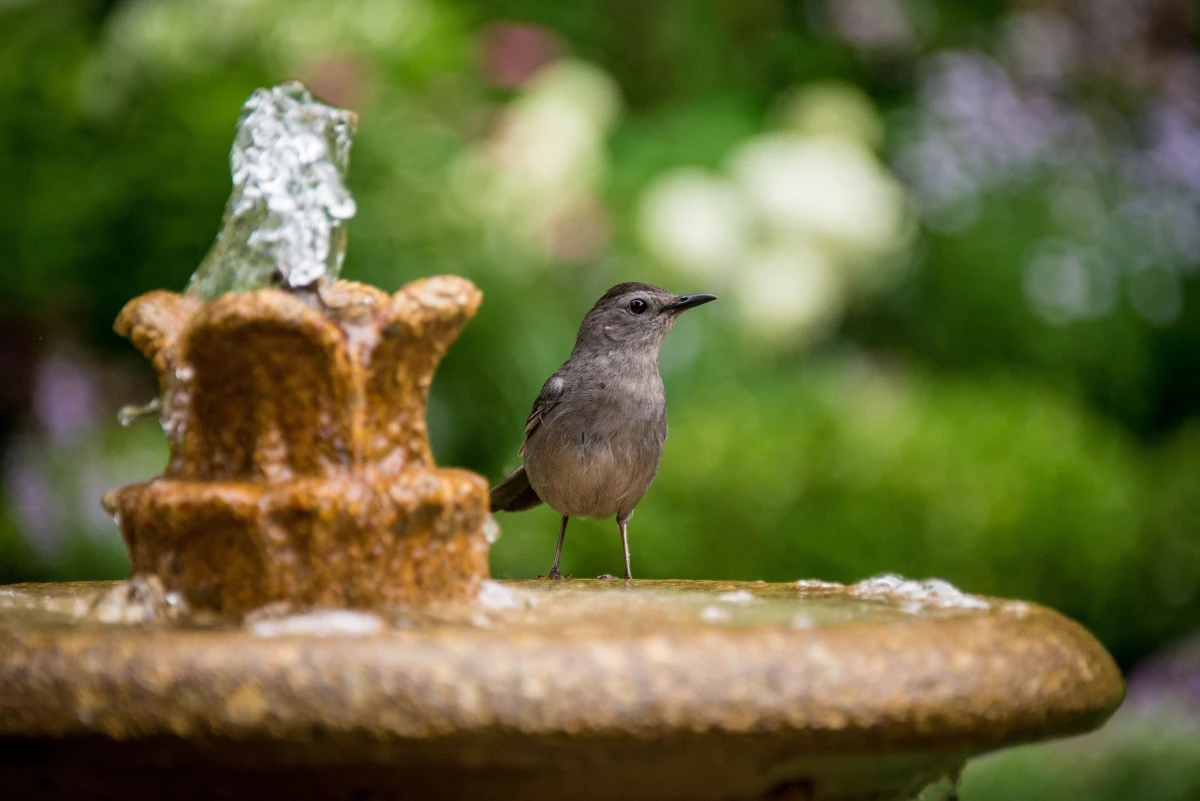
#Filtered water
Unfiltered water isn’t suitable for things like direct human consumption, food preparation, or for anything that comes in direct contact with you. At the very least it should be boiled to kill disease-causing organisms. If you have a filtering system, here are some ways you can use your collected water:
Unfiltered water isn’t suitable for things like direct human consumption
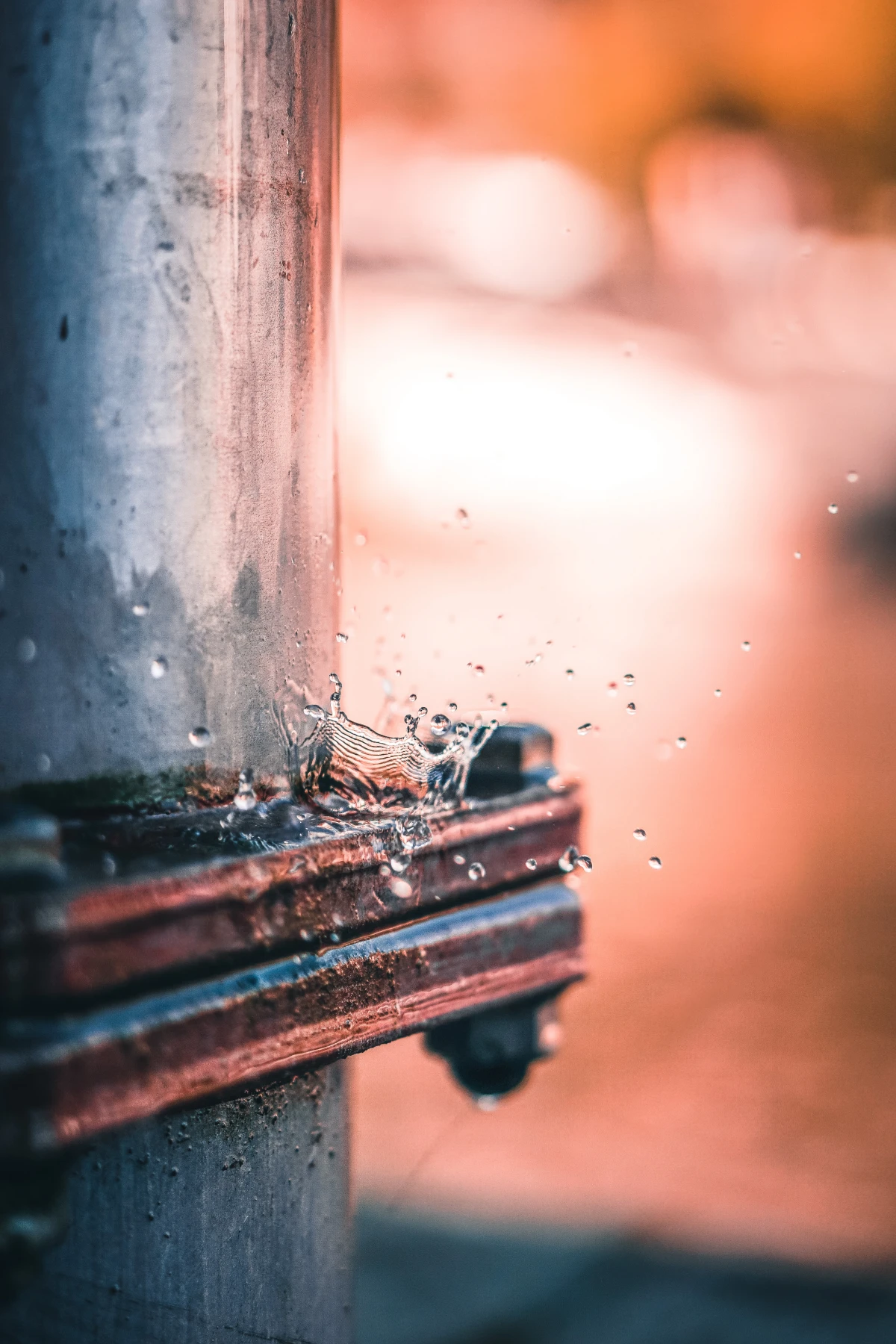
- Wash the dishes;
- Drink it;
- Give it to pets and livestock;
- Run a bath with it;
- Cook with the water;
- Fill a pool;
- Use it for your humidifier;
- Other.
If you have a filtration system in place you can safely drink your collected rainwater
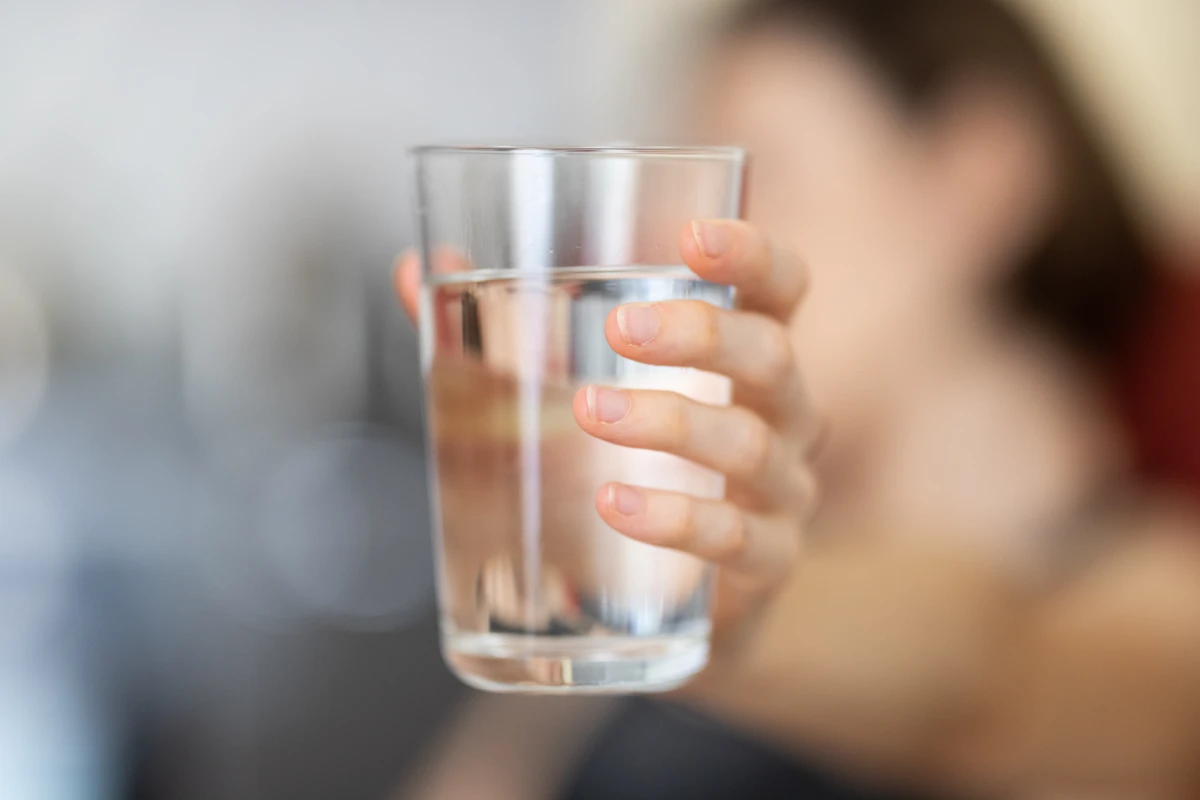
These are some of the amazing benefits of rainwater harvesting, as well as everything you need to know to get started. We hope you found this article useful. Now you can easily save some money while being more sustainably friendly.
These are some of the amazing benefits of rainwater harvesting
